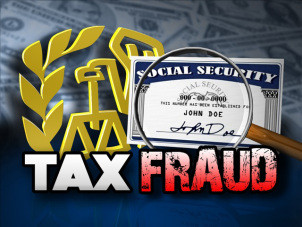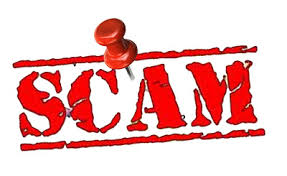 Identity thieves LOVE tax season.
Identity thieves LOVE tax season.
Any thief who has your personal information can easily file a tax return, collect the fraudulent refund and leave you waiting months to get your own refund back and clear up the issue. Unfortunately, it’s only getting worse – as the IRS launches hundreds of investigations into tax-related identity theft, where criminals use stolen personal information like Social Security Numbers to claim fraudulent refunds.
Here are some of the ways scammers use to steal your identity and how to avoid becoming a victim.
1. Fake calls from the IRS. As part of the scheme, callers impersonating IRS agents told victims that they owed taxes and needed to pay by wire transfer or a prepaid card. Other scams are carried out through email, and ask for personal information like a Social Security Number or birthdate — which can later be used to claim tax refunds.
To protect yourself, be wary of any correspondence from someone claiming to be from the IRS. The agency says it usually reaches out by mail, and it will never ask for personal information via email or phone. If you receive something questionable, reach out to the agency yourself and verify that it’s legitimate.
2. Rogue employees. Be careful about giving out your personal information. Don’t ever give away more personal information than you need to and don’t be hesitate to ask someone why they need any of your personal information.
Some tax preparers could potentially be a scam artist. To avoid being fooled, be wary of any preparers who charge fees based on the size of your refund and never let a preparer ask for the refund to be deposited into an account in their control rather than sent straight to you. To help you detect if you’ve been scammed, be sure to regularly monitor your bank accounts and credit card statements for any suspicious charges.
3. Data breaches. Data breaches occur when hackers break through a company’s privacy walls and access private customer information and scarily enough, it’s becoming increasingly common. Once that information is in a fraudster’s hands, it’s easy for them to file a tax return in your name. If you know or suspect that your information was compromised during a data breach, consider signing up for identity theft protection (see below) or start regularly monitoring your accounts on your own. Be sure to investigate any charges you don’t recognize, no matter how small they are.
Most of the time if someone has a stolen card, the thief will often test it with a small transaction first in order to see if the card is activated, to make a bigger purchase. And because there’s a good chance you will be more susceptible to identity theft after a data breach, make sure to strengthen your passwords utilizing at least 8 characters, including upper- and lower-case letters as well as numbers and special characters (!@#$%).
4. Snail mail. It’s not as common as online identity theft these days, but many fraudsters still use the old-school strategy of stealing mail from mailboxes to piece together the information they need to file a tax return in someone else’s name. Other times, thieves will go as extreme as dumpster diving – it’s a low-tech way to easily retrieve your information, so make sure you ALWAYS shred any personal documents.
Another easy way to protect yourself is to file early. Many scammers are able to get fraudulent refunds because they file before the victim does. If you file first, the IRS will be forced to investigate when a second return from the same person arrives.
 Click here to view the article source by Blake Ellis of CNN Money.
Click here to view the article source by Blake Ellis of CNN Money.

 Cash-strapped college students have been recruited to participate in a scam
Cash-strapped college students have been recruited to participate in a scam


